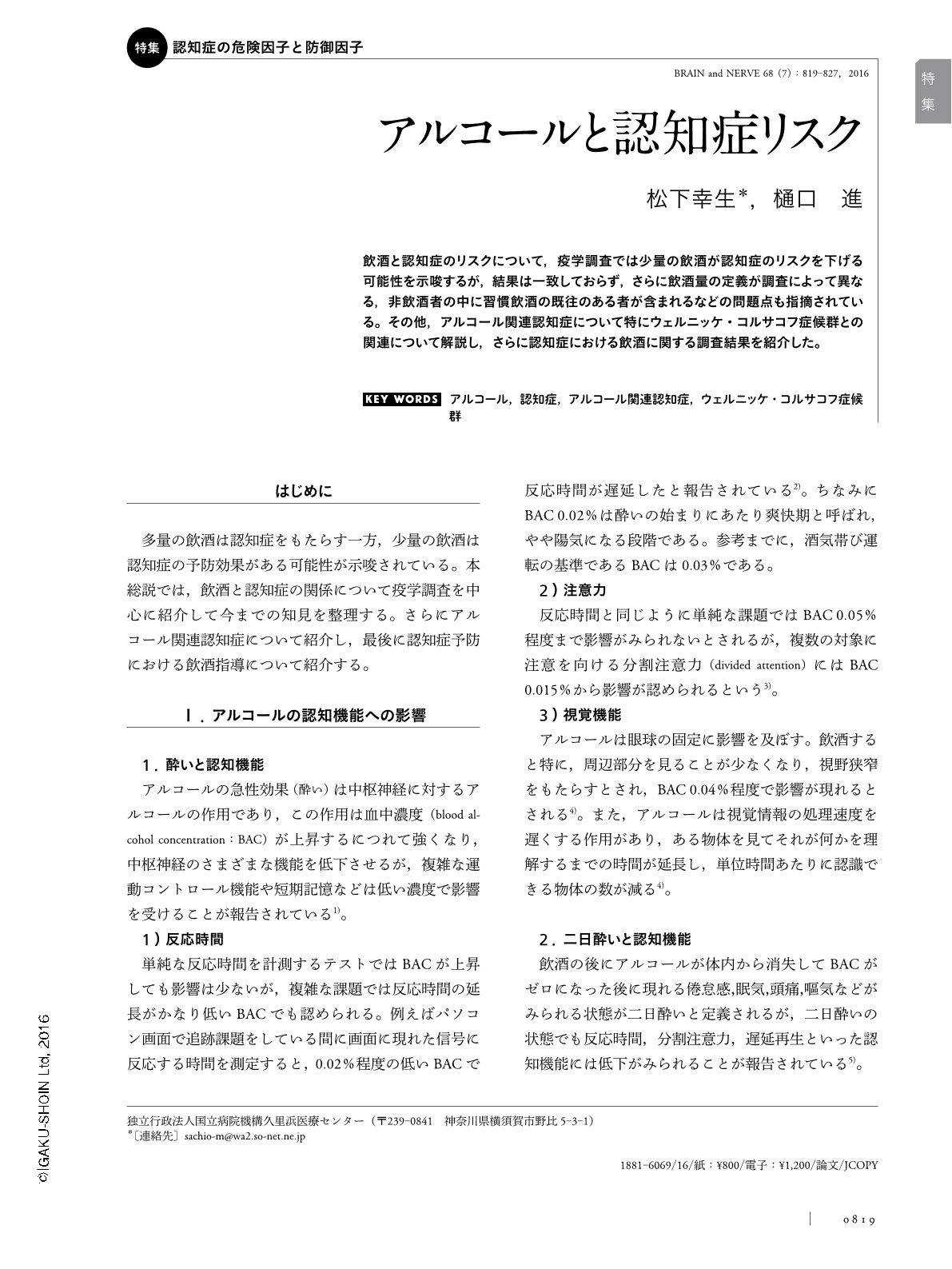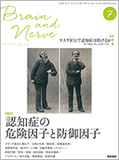Japanese
English
- 有料閲覧
- Abstract 文献概要
- 1ページ目 Look Inside
- 参考文献 Reference
飲酒と認知症のリスクについて,疫学調査では少量の飲酒が認知症のリスクを下げる可能性を示唆するが,結果は一致しておらず,さらに飲酒量の定義が調査によって異なる,非飲酒者の中に習慣飲酒の既往のある者が含まれるなどの問題点も指摘されている。その他,アルコール関連認知症について特にウェルニッケ・コルサコフ症候群との関連について解説し,さらに認知症における飲酒に関する調査結果を紹介した。
Abstract
This article reviews studies examining the relationship between alcohol consumption and dementia. Several studies have found that light to moderate alcohol consumption might be associated with decreased dementia risk compared to alcohol abstention. However, not all studies drew the same conclusion and there is no consensus regarding decreased dementia risk related to light to moderate alcohol consumption. The methodological limitations of these studies also need to be considered. For example, definition of alcohol consumption varies with studies. Some studies defined no drinking as never consuming alcohol, while other studies defined it as currently not consuming alcohol. Estimates of dementia risk related to alcohol consumption should be significantly altered by these definitions. Therefore, based on the current evidence, alcohol should not be used as a means to decrease the risk of developing dementia. This article also describes the pathophysiology of alcohol-related dementia, the relationship between Wernicke-Korsakoff syndrome and alcohol-related dementia, clinical characteristics, and the prevalence of alcohol-related dementia. Finally, we document a couple of articles examining the relationship between mortality and alcohol consumption in patients with mild Alzheimer's disease and the impact of alcohol abstention on cognitive decline in patients with Alzheimer's disease.

Copyright © 2016, Igaku-Shoin Ltd. All rights reserved.


